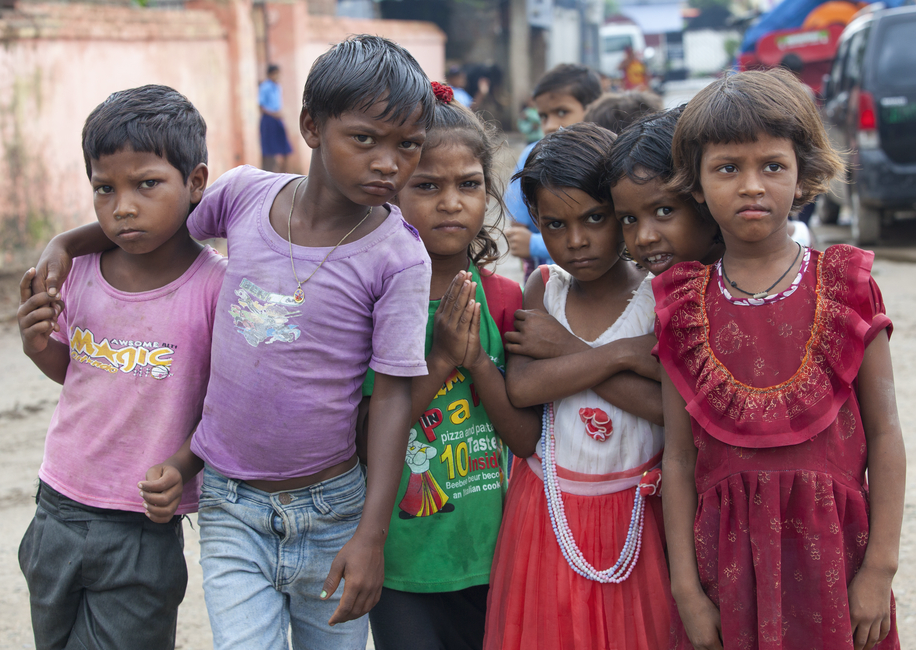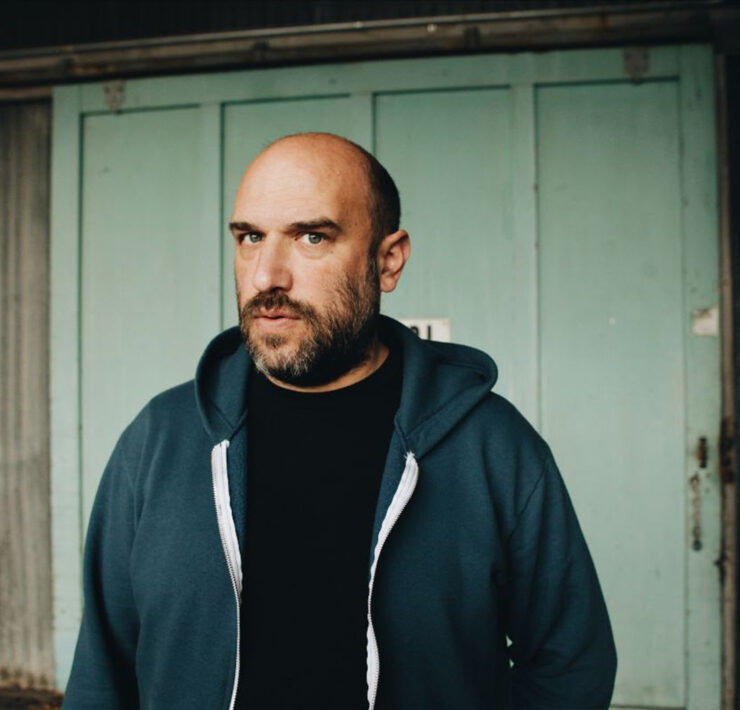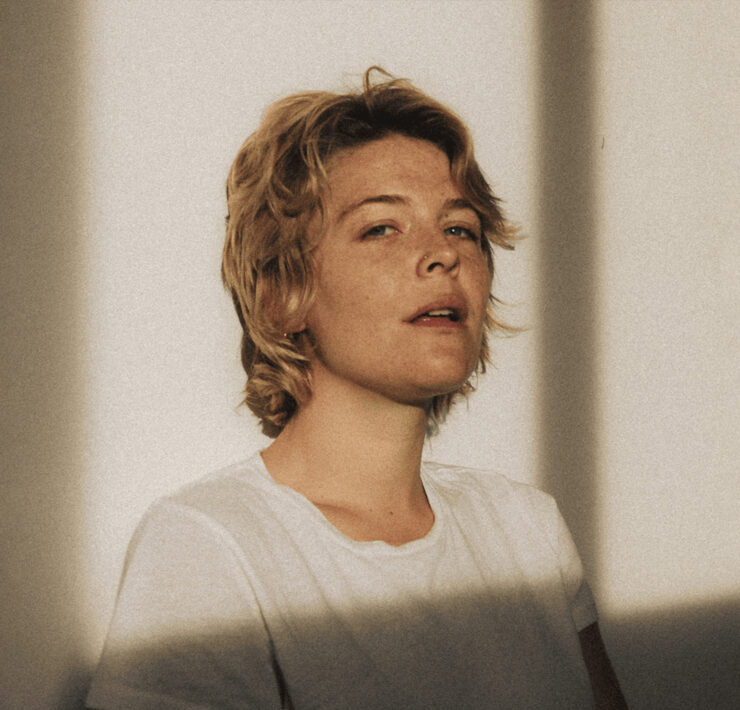
This record is about heartbreak,” says Sarah Barthel, the vocal half of Phantogram, referring to 2016’s Three. “Finding the beauty in tragedy, and then rising above it.”
That’s the sort of talk that might cause some to write Three off as another ode to bad breakups, but one listen is proof the heartbreak in question runs a lot deeper than a nominal case of the sads.
Three is a rolling, moody storm of fraught emotions and melodies that seem to be making their final whirlpool swirl before being pulled beneath the waves.
I tried, I tried to save so many lives, sings Barthel on “Destroyer.” I guess my heart got carried away / I guess the dark turned off the light.
“We’ve been through a lot in general, and that is where our dark lyrics and emotional music comes from,” Barthel says. “But this time around, it was harder to hide what we were going through.”
She’s referring to her older sister, Rebecca Claire Barthel, who tragically took her own life in 2015. Rebecca was also a close friend of Josh Carter, the other half of Phantogram.
Her death cast a long shadow over Three’s recording process, and it shows. The duo cut their teeth on Brooklyn trip-hop, crafting dark, danceable bloodrushes that got you moving like you were in a trance.
But on Three, that idiosyncrasy takes a backseat to moody, dub-stricken pop that is just as likely to get the fists pumping at Sasquatch and Firefly as it is to get you reflecting on your own history of personal struggles while alone in your car.
If that sounds a little grim, Barthel says it’s intentional. “I think a lot of people think this record is a lot darker than our other ones because we cut to the chase with the descriptions in the titles,” she says. “Earlier songs like ‘Mouthful of Diamonds’ are about somebody close to you who is a smooth talker, deceitful and hurtful because of false promises. ‘Fall in Love’ is disappointing yourself by intentionally hurting someone who unconditionally loves you.
“But [on Three], ‘Cruel World’ is just about how cruel the world is. I guess we wanted to be more obvious with titles is what I’m trying to say. I think we were more willing to be open about what the songs mean to us.”
Their newfound openness is a progression from a time when Phantogram’s songs didn’t really seem to mean much beyond a good time. But this band has been around for a while now. Evolution was inevitable.
One
Phantogram got their start in Saratoga Springs, New York. They’ve been friends since high school, and after spending a few years tooling around with other projects (Barthel was pursuing a visual arts degree, Carter was trying his hand at experimental music in New York City), they finally started making music together.
They called themselves “Charlie Everywhere” at first, but switched the name to “Phantogram” after getting signed to the big leagues in 2009. It would be their first major evolution, but far from their last.
“The goal was to have our music be influential to as many people as we could get our music to,” Barthel says. “Luckily now, we have a major label to help us get it out to more ears.”
That major label is Republic, one of the most successful record companies in the world. With a roster that includes the likes of Taylor Swift, Drake, Ariana Grande and The Weeknd, Phantogram is an odd fit. Not because of their popularity—the duo’s hit “When I’m Small,” is one of the most recognizable beats of the decade—but because of their sound.
While other acts in Phantogram’s stratosphere are pop stars, the duo is more difficult to define. They’re in the rave crowd that gave us Flume and Dead Can Dance, but not of it. They’ve also dipped their toes into more accessible pop arenas and found a knack for collaboration. Phantogram has partnered with everyone from Miley Cyrus to Skrillex to their most noteworthy team-up: one that catapulted them from indie-scene it kids to major players in the music sphere.
Two
“How crazy is it to say that Big Boi from Outkast was our first collaboration?” Barthel asks, laughing.
It’s a rhetorical question, but it’s very crazy. Outkast is quite possibly the most influential hip-hop duo of all time. After Big Boi recruited Phantogram to help him cut a few songs from his 2012 album Vicious Lies and Dangerous Rumors, all three of them joined forces in 2015 for Big Grams, a collaborative EP that also featured the likes of Skrillex and Run the Jewels—arguably two of the hottest acts from Phantogram’s and Big Boi’s respective genres—and it also stretched Phantogram to different ways of creating.
“Sometimes we just started with piano and guitar, other times we started with production and a beat that Josh made, but it always came together at the same time,” Barthel says. “We produced and wrote. That kind of means we’re writing while we’re producing.”
But when it came to Big Grams, Barthel and Carter found themselves in new territory.
“It was definitely a different way of working. We learned a lot from Big Boi,” Barthel says. “We had never collaborated in this way before. It was always just the two of us in a space and nobody was allowed to hear our music until it was done. Then we started collaborating with Big Boi, and it got us ready to open up with Phantogram—and it was the best decision we could have ever made.”
Three
“Three is a natural progression for us,” Barthel says. “I think as artists, it’s normal to always move forward and want to evolve your art in one way or another. Three sounds like us just with more honed-in sounds and songwriting. We are very proud of this record.”
 As well they should be. Three is a deep dive into the two things that makes Phantogram tick: artful beats and smart teamwork.
As well they should be. Three is a deep dive into the two things that makes Phantogram tick: artful beats and smart teamwork.
The-Dream and Tricky Stewart, two R&B wonderworkers, get nods in the credits. So does Ricky Reed, the man who orchestrated the sounds of pop sensations like Meghan Trainor and Jason Derulo.
The sad death of Barthel’s sister came mid-recording, and a few of the tracks were in the can before the news came and the two took a break to grieve. Nevertheless, an air of angry melancholy resides over the album.
That’s not necessarily new—Phantogram fans are used to the sense of something just slightly sinister creeping at the edges of their melodies—but it’s more palpable and tangible on Three.
Particularly on the first single, “You Don’t Get Me High Anymore”—a raucous, scorching banger that buzzes in the back of your teeth while Barthel’s airy yelps pierce even the loudest riff. It might be the best song Phantogram’s ever made. “Music is our therapy,” Barthel says, and it’s clear that it’s working.
Some songs like “You Don’t Get Me High Anymore” showcase the struggle to stay afloat: Do you feel like letting go / I wonder how far down it is. But others, like the lovely, muted “Answer,” cling to hope by musing: All my heroes are gone, babe, but I know they’re out there.
And when you listen to Phantogram sing it, you can almost believe it.






















